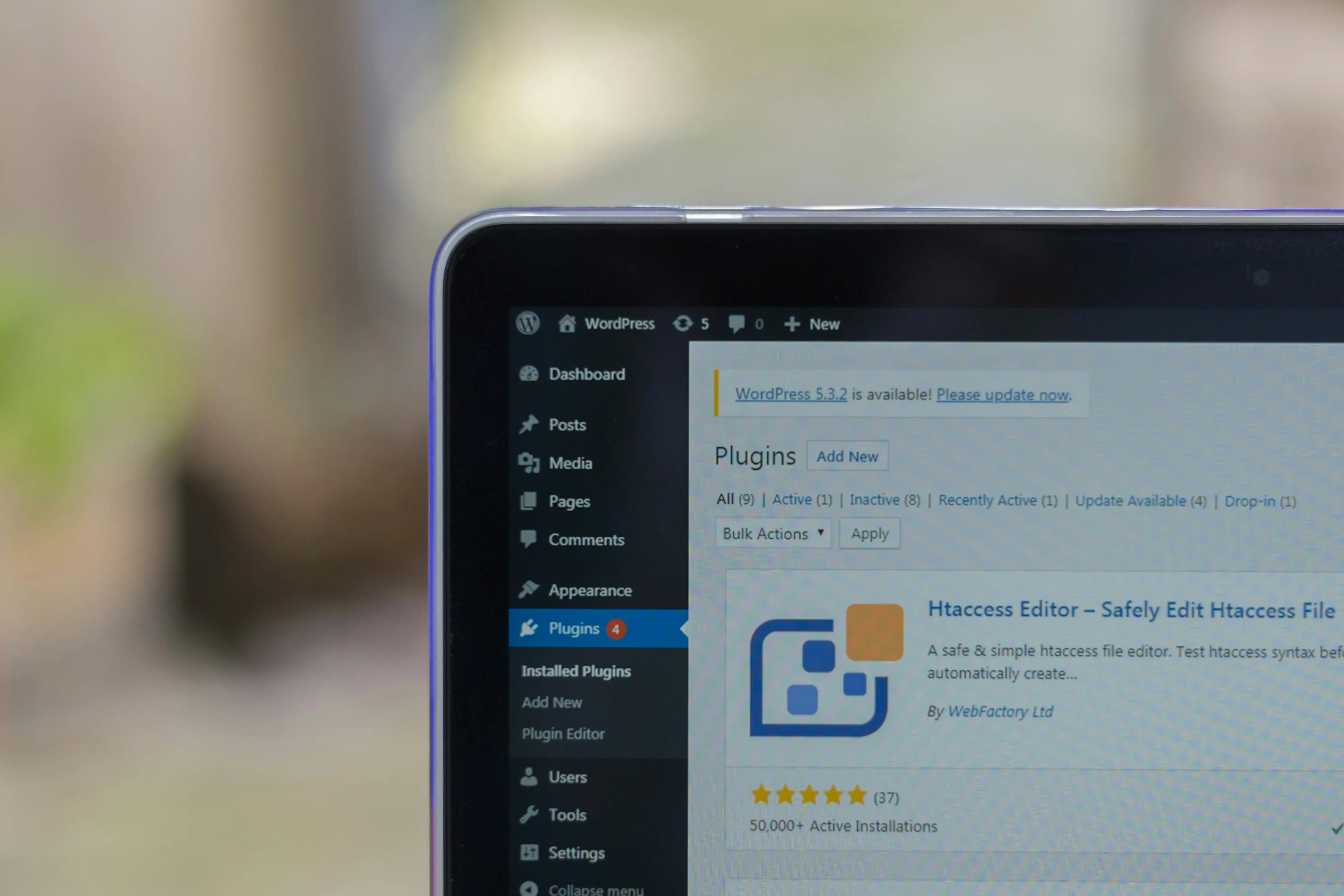Local SEO Magic: Igniting Your Business with the Right Strategy

Understanding Local SEO
To harness the power of online visibility for your local small business, it's crucial to understand the concept of local SEO. By optimizing your online presence for local searches, you can enhance your visibility in search engine results when potential customers in your area are looking for products or services you offer.
What is Local SEO
Local SEO, or local search engine optimization, refers to the process of optimizing your online presence to rank higher in local search results. It involves various strategies and techniques to improve your website's visibility, making it more likely for local customers to find your business when searching for relevant keywords or phrases.
Local SEO focuses on targeting specific geographical areas, such as cities, towns, or neighborhoods, to connect with potential customers in those locations. By optimizing your website and online profiles for local relevance, you can attract more local customers and increase foot traffic to your physical location.
To succeed in local SEO, it's essential to understand the factors that search engines consider when determining local search rankings. This includes factors like the relevance of your business information, the distance between the user and your business, and the prominence of your business in the local community. By optimizing these factors, you can improve your chances of appearing in the coveted local search results.
Importance for Small Businesses
Local SEO is particularly important for small businesses as it provides an opportunity to compete with larger, national or global brands on a local level. By targeting specific geographic areas, you can reach potential customers who are actively seeking products or services in your local area. This can significantly increase your visibility and drive more qualified leads to your business.
For example, if you run a small coffee shop in London, appearing in the top search results when someone searches for "coffee shops in London" is crucial for attracting customers in your area. Local SEO helps you achieve this visibility and ensures that your business is not overshadowed by larger chains or competitors.
By optimizing your online presence for local SEO, you can also build trust and credibility with potential customers. When they see your business consistently appearing in local search results, on Google Maps, or in online directories, they are more likely to perceive your business as reliable and reputable.
Investing time and effort in local SEO can yield significant long-term benefits for your small business. It can help you generate more website traffic, increase foot traffic to your physical store, and ultimately boost your revenue. To learn more about local SEO strategies and techniques, check out our articles on local SEO optimization and local SEO services.
In the next section, we will explore the process of developing a local SEO strategy to improve your online visibility and connect with local customers effectively.
Developing a Local SEO Strategy
To make the most of local search engine optimization (local SEO), small businesses need to develop a well-rounded strategy that focuses on key areas. This includes conducting keyword research, optimizing Google My Business, and localizing website content. By implementing these tactics, businesses can increase their visibility in local search results and attract more local customers.
Keyword Research for Local SEO
Keyword research is an essential aspect of any local SEO strategy. It involves identifying the keywords and phrases that are relevant to your business and are frequently searched by local customers. By targeting these keywords in your website content, you can improve your chances of appearing in local search results.
When conducting keyword research, consider the specific location and services or products your business offers. Use tools like Google Keyword Planner or SEMrush to find relevant keywords and assess their search volume. Look for keywords that have a high search volume and low competition to optimize your chances of ranking higher in local search results.
Optimizing Google My Business
Google My Business is a powerful tool for enhancing your local online presence. It allows you to create a business profile that appears in Google search results and Google Maps. Optimizing your Google My Business listing is crucial for local SEO success.
Ensure that your listing is complete and accurate, providing up-to-date contact information, business hours, and a description of your products or services. Include relevant keywords in your business description and choose appropriate categories to help Google understand your business better.
Encourage customers to leave reviews on your Google My Business listing, as positive reviews can improve your local search rankings. Respond to reviews, both positive and negative, to show that you value customer feedback. For more information on managing online reviews, refer to our section on Nurturing Online Reviews.
Localizing Website Content
Localizing your website content is another crucial aspect of a successful local SEO strategy. This involves tailoring your website content to incorporate local keywords and phrases. By including location-specific information throughout your website, search engines can better understand the relevance of your business to local search queries.
Consider creating location-specific landing pages or dedicated sections on your website that highlight your services or products in different local areas. This can help you target specific geographic locations and improve your visibility in local search results.
Additionally, include your business address and phone number on every page of your website, ideally in the footer or header. This ensures that search engines can easily identify your business as a local entity.
By developing a comprehensive local SEO strategy that includes keyword research, optimizing Google My Business, and localizing website content, small businesses can enhance their online presence and attract more local customers. Remember to regularly monitor and adjust your strategy to stay ahead of the competition and continue improving your local search rankings.
Building Local Citations
When it comes to local SEO, building local citations is an essential aspect of your local SEO strategy. Citations are online mentions of your business's name, address, and phone number (NAP) on various websites and directories. They play a crucial role in improving your business's visibility and credibility in local search results.
Importance of Citations
Citations are important for several reasons. Firstly, they help search engines like Google validate the accuracy and legitimacy of your business information. Consistent and accurate citations across multiple platforms signal to search engines that your business is trustworthy and reliable. This, in turn, can positively impact your local search rankings.
Secondly, citations serve as a way for potential customers to discover your business. When users search for local services or products, search engines often display local business directories and review sites. Having your business listed in these directories increases your chances of being found by potential customers.
Furthermore, citations can also drive direct traffic to your website. When users come across your business information on various platforms, they may click on the provided link to visit your website for more information or to make a purchase.
Best Practices for Citations
To make the most of your local citations, it's important to follow best practices. Here are some key guidelines to keep in mind:
-
Consistency: Ensure that your business name, address, and phone number (NAP) are consistent across all citations. Any inconsistencies can confuse search engines and potentially harm your local search rankings.
-
Accuracy: Double-check the accuracy of your NAP information before submitting it to directories. Even minor errors in your address or phone number can lead to confusion and negatively impact your local SEO efforts.
-
Relevance: Focus on building citations on platforms that are relevant to your business and industry. Target local directories, industry-specific directories, and review sites that cater to your target audience.
-
Quality over Quantity: While it's important to have a presence on multiple platforms, prioritize quality over quantity. Focus on building citations on reputable and authoritative directories that are trusted by both search engines and users.
-
Complete Profiles: Take the time to complete your business profiles on each platform. Provide detailed and accurate information about your business, including your hours of operation, website URL, and a brief description of your products or services.
By following these best practices, you can strengthen your local SEO efforts and increase your business's visibility in local search results. Remember, ongoing monitoring and maintenance of your citations is crucial to ensure their accuracy and effectiveness.
In the next section, we will explore the impact of online reviews on local SEO and strategies for encouraging positive reviews.
Nurturing Online Reviews
When it comes to local SEO, online reviews play a crucial role in establishing trust and credibility for your business. Positive reviews can have a significant impact on your local search engine rankings, making it essential to nurture and manage them effectively.
Impact of Reviews on Local SEO
Online reviews have a direct impact on your local SEO efforts. Search engines like Google take reviews into consideration when determining the relevance and prominence of your business in local search results. Positive reviews indicate to search engines that your business is trusted and provides a positive experience to customers.
Additionally, online reviews can influence consumer behavior. Many potential customers rely on reviews to make informed decisions about which local businesses to engage with. Positive reviews can act as powerful social proof, convincing potential customers to choose your business over competitors.
To leverage the impact of reviews on your local SEO, it's crucial to actively encourage and manage them.
Encouraging Positive Reviews
Encouraging your customers to leave positive reviews is an important aspect of your local SEO strategy. Here are some effective strategies to encourage positive reviews:
-
Provide exceptional service: Offer outstanding products or services to your customers. By exceeding their expectations, you increase the likelihood of receiving positive reviews.
-
Ask for reviews: Don't hesitate to ask satisfied customers to leave a review. You can do this in person, through email, or by including a call-to-action on your website or social media profiles.
-
Make it easy: Provide clear instructions on how and where customers can leave reviews. Include direct links to popular review platforms such as Google My Business, Yelp, or industry-specific review sites.
-
Respond to reviews: Engage with your customers by responding to their reviews, whether they are positive or negative. This demonstrates that you value their feedback and are actively involved in your business's online reputation.
-
Offer incentives: Consider offering a small incentive, such as a discount or a freebie, to customers who leave a review. Be careful to comply with the guidelines of review platforms and avoid any practices that may be seen as unethical.
Remember, it's important to encourage authentic and genuine reviews. Avoid incentivizing or soliciting fake reviews, as this can have severe consequences for your business's reputation and local SEO rankings.
By actively nurturing positive online reviews, you can enhance your local SEO efforts and attract more potential customers to your business. Don't underestimate the power of reviews in building trust, credibility, and visibility for your local small business.
Leveraging Social Media for Local SEO
In today's digital age, social media platforms have become powerful tools for businesses to connect with their local audiences and enhance their local SEO strategy. By leveraging social media effectively, local businesses can increase their visibility, engage with their target customers, and ultimately drive more traffic to their websites and physical locations.
Social Media Platforms for Local Businesses
When it comes to social media platforms, local businesses have a variety of options to choose from. However, it's important to focus on platforms that align with the target audience and industry. Here are some popular social media platforms that are commonly used by local businesses:
-
Facebook: With over 2.8 billion monthly active users, Facebook provides an excellent platform for local businesses to connect with their target customers. Businesses can create a Facebook Business Page, share updates, photos, and videos, engage with customers through comments and messages, and even run targeted ads to reach a specific local audience.
-
Instagram: Known for its visual appeal, Instagram is a great platform for businesses that can showcase their products or services through captivating images and videos. Local businesses can create an Instagram Business Profile, use relevant hashtags, and engage with the local community through comments, likes, and stories.
-
Twitter: Twitter allows businesses to share real-time updates, news, and announcements. It's a great platform to engage with customers directly, respond to queries, and participate in local conversations by using trending hashtags. Twitter's search functionality can also help businesses monitor mentions and stay connected with their local community.
-
LinkedIn: While primarily known as a professional networking platform, LinkedIn can be valuable for local businesses, especially those targeting a B2B audience. By creating a LinkedIn Company Page and sharing industry insights, thought leadership articles, and local business updates, businesses can establish their expertise and connect with other professionals in their area.
-
YouTube: As a video-centric platform, YouTube offers local businesses the opportunity to create and share informative and engaging video content. By uploading videos related to their products or services, local businesses can attract a local audience and improve their visibility in search engine results.
Engaging with Local Audiences
Once local businesses have established their presence on social media platforms, it's crucial to actively engage with their local audiences. Here are some strategies for effective engagement:
-
Respond to comments and messages: Promptly respond to comments, messages, and reviews from customers. This demonstrates that the business values its customers and is attentive to their needs.
-
Encourage user-generated content: Encourage customers to share their experiences with the business by tagging the business or using specific hashtags. This can help generate organic content that showcases the business and its offerings.
-
Run location-based campaigns: Create social media campaigns that are specific to the local area. This can include promotions, contests, or events that resonate with the local audience and encourage them to engage with the business.
-
Collaborate with local influencers: Identify local influencers or micro-influencers who have a strong following in the local community. Collaborating with them can help expand the business's reach and credibility among the local audience.
-
Share local stories and events: Showcasing local stories, events, and community involvement helps businesses connect on a deeper level with their local audience. This can include highlighting local partnerships, charity work, or participating in local events.
By leveraging social media platforms and engaging with the local audience, businesses can strengthen their local SEO efforts and establish a strong online presence in their community. Remember to regularly monitor social media performance, track relevant metrics, and adjust strategies as needed to maximize the impact of social media on local SEO.
Tracking and Measuring Success
Once you have implemented your local SEO strategy, it is essential to monitor and measure its performance to ensure its effectiveness and make any necessary adjustments. Tracking the progress of your local SEO efforts allows you to understand what is working well and identify areas for improvement. In this section, we will explore how to monitor local SEO performance and the key metrics to consider.
Monitoring Local SEO Performance
To monitor the performance of your local SEO strategy, there are several tools and techniques you can employ. Here are some effective methods to track your progress:
-
Google Analytics: Utilize Google Analytics to gain insights into your website's traffic, user behavior, and conversions. This tool provides valuable data on the number of visitors, their location, how they found your website, and more. By regularly analyzing this information, you can gauge the effectiveness of your local SEO efforts.
-
Google My Business Insights: If you have claimed and optimized your Google My Business listing, you can access valuable performance data through the Insights section. This data includes the number of views, clicks, and actions taken on your listing, such as website visits and phone calls. Monitoring these metrics helps you understand how your business is being discovered and interacted with on Google.
-
Rank Tracking Tools: Tools like SEMrush, Moz, and Ahrefs offer rank tracking capabilities, allowing you to monitor your website's rankings in local search results. By tracking your keyword rankings over time, you can assess the impact of your local SEO efforts and identify any fluctuations or trends.
-
Local Listings Audit: Regularly audit your local business listings across various directories and review sites. Ensure that your business information, such as name, address, phone number (NAP), and website, is consistent and accurate. This helps improve your local SEO performance and ensures potential customers can find your business easily.
Key Metrics for Local SEO
When measuring the success of your local SEO strategy, it is important to focus on the following key metrics:
-
Local Organic Traffic: Monitor the amount of organic traffic your website receives from local searches. This metric indicates how effective your local SEO efforts are in driving relevant traffic to your site.
-
Local Keyword Rankings: Keep track of your website's rankings for specific local keywords related to your business. A rise in rankings indicates improved visibility in local search results.
-
Click-Through Rate (CTR): Analyze the CTR for your local search listings. A higher CTR suggests that your business listing is compelling and attractive to users, resulting in more clicks and potential conversions.
-
Online Reviews and Ratings: Pay attention to the quantity and quality of online reviews for your business. Positive reviews not only improve your online reputation but also impact local SEO rankings. Encourage satisfied customers to leave reviews to boost your credibility and visibility.
By regularly monitoring these key metrics, you can evaluate the effectiveness of your local SEO strategy and make data-driven decisions to enhance your online visibility and attract more customers.
Remember, local SEO is an ongoing process, and it is crucial to adapt and refine your strategy based on the insights gained from tracking and measuring your performance. Consider seeking the assistance of a professional local SEO agency or local SEO services to ensure you stay on top of your local SEO game and achieve optimal results for your small business.

Senior Developer


